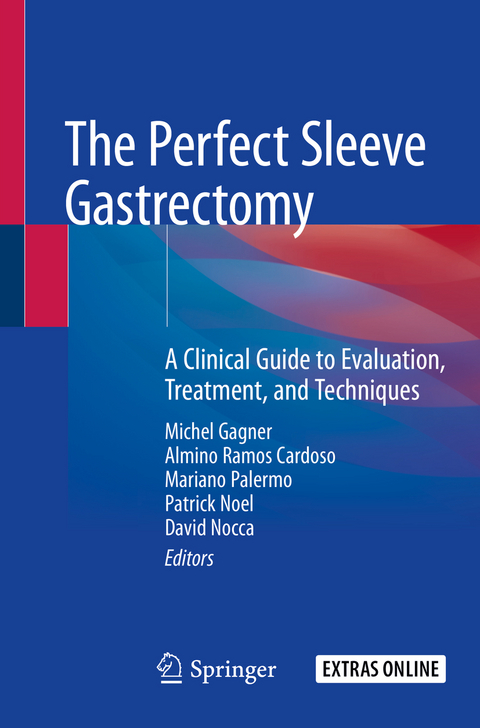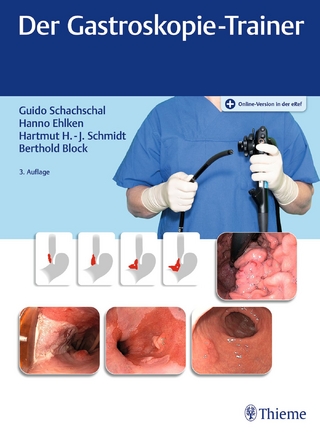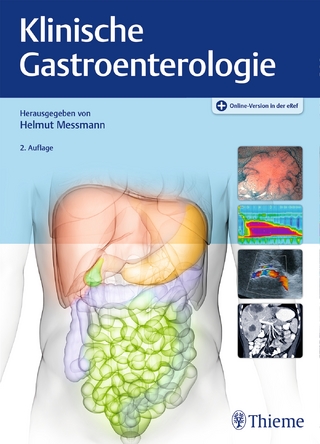
The Perfect Sleeve Gastrectomy
Springer International Publishing (Verlag)
978-3-030-28938-6 (ISBN)
Sleeve gastrectomy (SG) is the most common bariatric procedure performed worldwide, more than 55% of bariatric procedures are sleeve gastrectomies. This title will be comprehensive and detail all the approaches used in performing sleeve gastrectomy, offering readers all the tools needed to perform the perfect SG.
Obesity has become a major global problem that continues to spread in both developed and developing countries. It costs more than any other health problem due to its prevalence and its many costly complications such diabetes and heart disease as well as in disability and loss of productivity. While prevention of obesity is the best approach for the future, the current problem lies with managing those who are already obese or morbidly obese who constitute close to two thirds of the population in many countries such as the US. Diet, exercise, and behavioral change are the mainstays for any meaningful attempt for significant and durable weight loss. Unfortunately, for those who are morbidly obese, these measures alone almost consistently fail to achieve acceptable weight loss in the long term.
Today, bariatric surgery is the only evidence-based treatment for morbid obesity with a low complication rate and acceptable results in the long-term for both weight loss and resolution of comorbidities.
Despite the data, the acceptance of these operations was limited due to fear of what was perceived as major surgery. Today, applying minimally invasive technology to these complex operations made them more acceptable to patients due to decreased pain, faster recovery and fewer overall complications. This, in addition to improved outcomes as we went further along the learning curve, has made these operations more common and helped growing the field to be an independent specialty for surgeons and perhaps a new specialty for gastroenterologist.
In these exciting times, the 5 international editors (one of them, Michel Gagner, isthe creator of the SG) wanted to capture the global standards of practice at a time of change, excitement, and lots of controversy, regarding this common procedure.
We an aim to shed light on best practices across the borders, the intention of this volume is to develop a reliable reference to guide the practicing physician anywhere in the world, and from whatever specialty (surgeon, gastroenterologist or endoscopist) to navigate through the many current options of therapy in this rapidly changing field.
We also aim to provide high quality illustrations and high-definition videos of these techniques to go with the didactic chapters written by thought leaders. In this book we will focus first on the clinical problems of the patients and the indications for the sleeve. Regarding the technical aspects, we will describe the technique step-by-step (including videos) and also we will detail the staplers, its size and different colors -- and the different sizes of the bougies, and also special description of the reinforcement of the sutures after the sleeve. We know that mainly the SG has a restrictive function, but we will also describe the metabolic effects of this surgery.
Then we will describe the nontraditional SG techniques, such as the endoscopic approach, staples sleeve and robotic technologies. Bariatric surgery has very few rates of complications, but when complications happen, they are severe. Thus we will describe how to identify them immediately and also the different approaches to treat them by endoscopy, laparoscopy and percutaneous image guided surgery.
A chapter will also cover revisional surgery and the different revisional procedures, not only from sleeve to other procedures but also from other procedures to SG.
For the last section,we will include the lessons learned from almost 20 years now since the SG was first described, providing an overview on how we imagine the future will be for the mostc
lt;p>Almino C. Ramos MD, MSc, PhD, FACS, FASMBS
Almino C. Ramos is the current President of the IFSO-International Federation for the Surgery of Obesity and Metabolic Disorders, has Master Degree and PhD proficiency in surgery and is Professor at UNICAMP State University of Campinas in Sao Paulo-Brazil and Medical Director of Gastro-Obeso-Center Metabolic Optimization Center, a Center of Excellence in bariatric and metabolic surgery in Sao Paulo-Brazil. Dr. Ramos has been fully dedicated to bariatric and metabolic surgery since 1999. Former President of the Brazilian Bariatric and Metabolic Society (SBCBM) (2013-14) was IFSO Latin America Chapter Member at Large (2012-2014), IFSO Secretary-Treasurer (2014-17) and member of Executive Board of IFSO, International and Honorary Fellow of ASMBS and ACS member as FACS. Academically Dr. Ramos has been involved in several medical studies as author or co-author of more than 100 peer-reviewed publications involving articles and book chapters. Also has worked in the organizing and scientific committees of several symposiums, courses and congresses. Member of Editorial Board of Obesity Surgery, Surgery of Obesity and Related Diseases (SOARD) and ABCD Journals. He has served as faculty in several courses and congresses all over the world as well performed more than 500 demonstratives live surgeries in different countries. His practice involves experience with all the different laparoscopic bariatric/metabolic procedures with expertise in Roux-en-Y Gastric Bypass and Sleeve Gastrectomy with active interest in revisional and metabolic surgery. Besides the great experience with laparoscopic surgery, Dr. Ramos has also been working with robotic and endoscopic regular surgery practice.
Mariano Palermo, MD, PhD, FACS, CBCD (Hon.), CBC (Hon.)
Is a general and gastrointestinal surgeon. He works in Buenos Aires, Argentina, in the field of Bariatric and minimally invasive surgery.
Graduated from the School of Medicine at Buenos Aires University, made his surgical training in Buenos Aires and then continued his posdoctoral research training in USA, lead by Prof. Michel Gagner.
Author of 7 books, including the book entitled "Laparoscopic Gastrointestinal Surgery, novel techniques, Extending the limits" edited together with Prof. Michel Gagner and Mariano Giménez.Member of the editorial board of many national and international journals. Authored more than 300 papers published and presented at global and national journals and conferences. Multiple presentations, panelist and participations in conferences in Argentina and abroad. Coordination and management of many courses and congresses in the country and abroad. Author of 38 book chapters.
Dr. Palermo is past President of the International Club of Young Laparoscopic Surgeons (ICYLS) where he served as president from 2011 to 2019.
He currently is the coordinator of Bariatric Surgery Centro CIEN - DIAGNOMED in Buienos Aires, Argentina and staff surgeon at the DAICIM Foundation.
Patrick Noel, MD, FACS, IFAMBS
Trained in minimally invasive surgery in the early '90s in Montpellier, he founded the bariatric department in a private practice in Marseille (France) in 2000.He continues to prove his interest in new bariatric approaches by developing resleeve gastrectomy, spider surgery and barclip surgery.
He is now bringing his experience to the Gulf by joining several renowned hospitals across the region and looking into training young surgeons of the region to minimally invasive and bariatric surgery.
David Nocca, MD
Professor of Digestive Surgery at Montpellier University Hospital. He is recognized worldwide as an expert in bariatric sleeve surgery.
He was one of the first to integrate LPG techniques into the pre and postoperative management of the o
Part 1: Operative preparation and background.- Part 2: Technical aspects.- Part 3: Sleeve gastrectomy GERD and hiatal hernia.- Part 4: Nontraditional sleeve gastrectomy.- Part 5: Treatment of complications.- Part 6: Revisional Surgery.- Part 7: Education and future.
| Erscheinungsdatum | 21.05.2021 |
|---|---|
| Zusatzinfo | XXIII, 501 p. 171 illus., 151 illus. in color. |
| Verlagsort | Cham |
| Sprache | englisch |
| Maße | 155 x 235 mm |
| Gewicht | 889 g |
| Themenwelt | Medizin / Pharmazie ► Medizinische Fachgebiete ► Chirurgie |
| Medizinische Fachgebiete ► Innere Medizin ► Gastroenterologie | |
| Schlagworte | Bariatric Surgery • Metabolic Surgery • Obesity • Sleeve Gastrectomy • Weitght loss surgery |
| ISBN-10 | 3-030-28938-9 / 3030289389 |
| ISBN-13 | 978-3-030-28938-6 / 9783030289386 |
| Zustand | Neuware |
| Haben Sie eine Frage zum Produkt? |
aus dem Bereich


